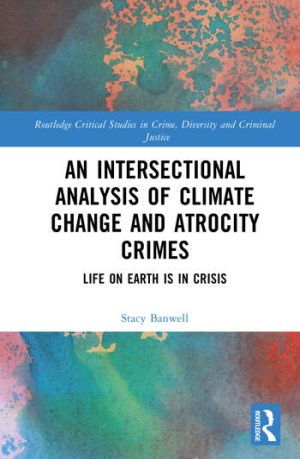
Examining the relationship between anthropogenic climate change and atrocity crimes, this book analyses how gender, race, and species hierarchies shape experiences of and responses to the climate emergency.
Investigating the nexus between human-induced climate change and atrocity crimes, this book champions a paradigm shift from human-centered approaches toward multi-species justice to mitigate the ramifications of this existential crisis. Readers will acquire a nuanced understanding of how prevailing climate crisis strategies are deficient: they marginalize the experiences of men and boys, prioritize Global North interests over the lives of those in the Global South, and elevate human rights above those of other living beings. The research presents groundbreaking solutions through historical and contemporary case studies, a comprehensive assessment of environmental insecurity factors, and two innovative revisions to the definition of ecocide. Additionally, it proposes viable alternatives to capitalism, including a transition from economic globalization to global economic equity through ecological debt reparations, offering a comprehensive framework for achieving multi-species climate justice and establishing environmental destruction as an international crime.
An Intersectional Analysis of Climate Change and Atrocity Crimes will be of great value to students and scholars in Green Criminology, War Studies, Security Studies, Law, History, Geography, Anthropology, and Cultural Studies. It also serves as a valuable resource for policy architects, Responsibility to Protect professionals, humanitarian organizations, human rights advocates, security specialists, and sustainability experts.